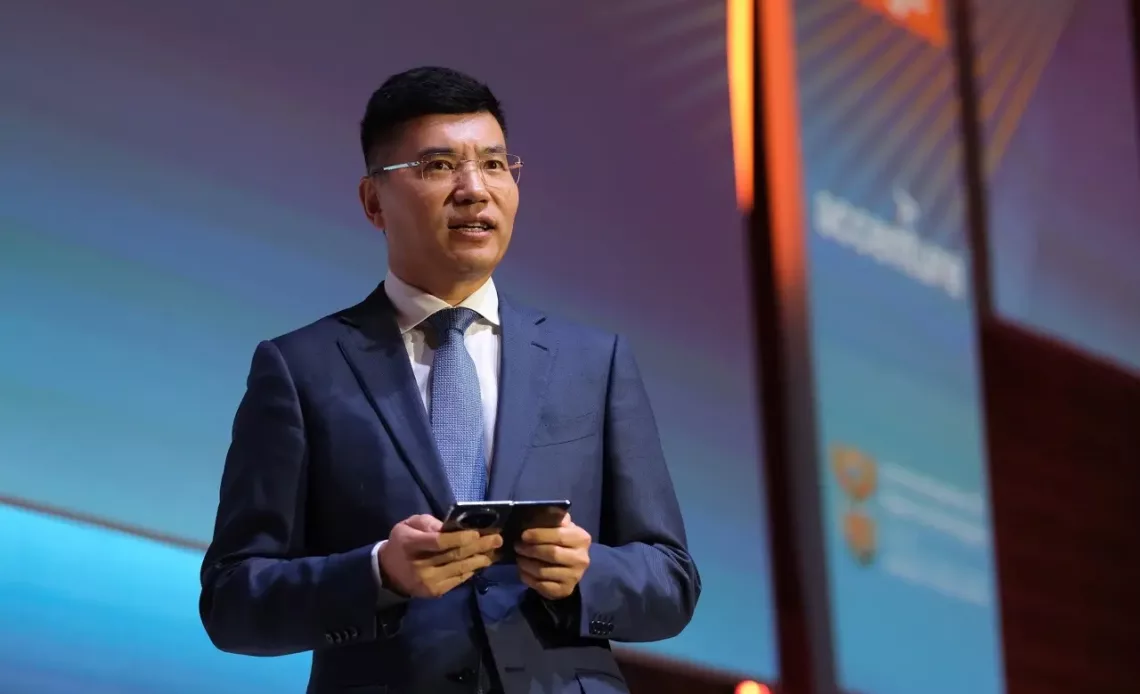
Huawei Technologies will accelerate development of connectivity infrastructure as a key priority for Kenya’s digital transformation. This infrastructure, said Leo Chen, President of Huawei Sub-Saharan Africa, will be more advanced, future-proof, inclusive and accessible.
In his opening keynote for AfricaCom 2023, Africa’s largest tech conference, currently underway in Cape Town, Leo Chen laid out how the two biggest transformative forces, namely digitalisation and decarbonisation, are driving humanity towards an intelligent world. Kenya, he said, can ride a new wave of “digital-physical convergence”, which marks a new phase of digitalisation, to leapfrog development in the digital economy era.
“That is because, in the unfolding future, more people, things, and applications will be connected,” he said. “This process will generate far more data than it does today. So, we need a more secure, reliable, and developed network to act as the foundation for digitalisation,” added Leo Chen.
Achieving transformative digitalisation, as Kenya is doing with its ambitious plans to digitalise government services on the E-Citizen Platform and digitise of public records, requires the use of leading-edge connectivity technology such as Huawei’s 4G, 5G and even 5G advanced solutions.
According to Leo Chen, as Kenya makes progress with laying out 100,000 kilometers of fiber optic internet cable across the country, the connectivity technology needs to be inclusive and future-proof, to support future application scenarios, like smart solutions in vertical industries and smart homes.
Inclusivity, he pointed out, addresses connectivity in remote areas and to support devices and applications for people living with various disabilities. “This means fiber connectivity can be complemented with the wireless RuralStar solution to connect rural regions with broadband coverage, access to the Internet, and digital services. This bridges the digital gap and enables inclusive development,” said Leo Chen.
According to Leo Chen, providing computing resources to the government, public and SMEs through the establishment of national cloud data centres will drive the innovation ecosystem. “By establishing ‘e-Government Clouds, the government can improve operational efficiency, and provide citizens with one-stop and innovative services,” he noted. Adopting these kinds of digital technologies will also help drive decarbonisation across the continent. In fact, he said, the ICT industry can help reduce global carbon emissions by 20%, equivalent to 10 times its own emissions, and can also make digital energy production more efficient. “For example, across more than 10 African countries, we have built over 6 000 green sites, and helped carriers save Kshs 4 billion (USD 40 million),” explained Leo Chen.

